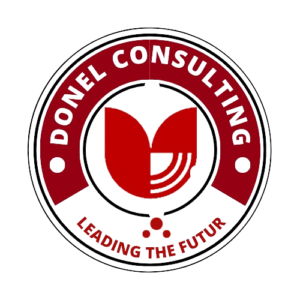A team of experienced professionals who are dedicated to helping them secure sustainable funding and achieve their goals.
Fundraising & Grant Proposal Advisory
Key services
Grant Development and Proposal Writing Services
- Professional grant proposal writing services
- Grant readiness assessments to determine if an organization is positioned to seek funding
- Project development to help organizations clarify goals, inputs, activities, and outcomes
- Comprehensive funding searches to identify potential grant opportunities
- Grant proposal reviews and editing to ensure proposals meet funder guidelines
- Grant compliance and reporting support after an award is received
Fundraising Consulting and Strategy
- Developing strategic fundraising plans and goals
- Donor prospecting and mapping to identify the best funding sources
- Assistance with individual giving programs for international development work
- Support in preparing winning project proposals for institutional donors
- Mentoring and training for fundraising staff
- Establishing income-generating streams and social enterprises
Contact us today to learn more about how we can support your fundraising and grant proposal development needs.
We got an extensive Expertise in compliance, reporting, and grant administration
Get insights from our previous missions
Emotional Connection
Grant reviewers are humans, and stories that evoke emotions like empathy, hope, or urgency are more likely to resonate.
The Psychology of Storytelling in Persuasion
Psychological intricacies of storytelling in persuasion, when masterfully harnessed, possess unparalleled potency to captivate hearts, stimulate minds, and catalyze transformative action, transcending mere information dissemination to forge profound emotional connections that resonate deeply within the human psyche, ultimately compelling individuals to align their beliefs and behaviors with the narrative’s underlying message
The Emotional Landscape of Grant Reviewers
Understanding the motivations and challenges of reviewers can help you tailor your story to address their concerns.
Grant reviewers are often motivated by a desire to contribute to the scientific community and advance research in their field. Many see reviewing as a way to “give back” and support the peer review process that is so vital to academia. This sense of duty and service is especially strong among researchers who frequently submit grant proposals themselves.
Focusing on evolving trends in grantmaking is crucial for any organization seeking funding.
Think of your funding forecast as a roadmap to navigate the ever-changing landscape of grantmaking.
Equity-Centric Philanthropy
Foundations are pivoting towards funding initiatives that address systemic inequalities, prioritizing projects led by and serving marginalized communities. Organizations aligning their missions with equity-focused objectives may find increased funding opportunities.
Think long-term: Building relationships with potential funders takes time and effort.
Cultivating enduring partnerships with funders demands persistent engagement, strategic communication, and unwavering commitment to shared objectives, fostering a proactive fundraising ecosystem that yields sustainable impact.
A pre-proposal inquiry?
Some funders offer the opportunity to submit a brief inquiry before a full proposal and serve as an initial screening mechanism for funders to evaluate the potential projects.
Quality internationalization practices can help nonprofits stand out.
Localizing the donor experience through language, currency, and payment methods. Providing website content, donation forms, and communications in donors’ native languages and local currencies creates a seamless experience for international supporters. Offering region-specific payment options also removes barriers to giving.
Developing robust compliance policies and procedures. Operating internationally requires navigating complex regulations around sanctions, export controls, employment laws, and more. Having clear written policies, conducting thorough due diligence on partners, and providing regular staff training are critical.Assessing the optimal legal structure for each country.
The best approach may vary – from establishing local entities to partnering with existing organizations. Carefully evaluating options helps ensure proper legal authority and tax compliance.
Explore the importance of logic models in grant proposals.
Impact Communication
Grantors seek tangible evidence of potential impact. A well-designed logic model communicates intended outcomes and measurement indicators clearly, demonstrating commitment to the grantor’s objectives and building trust in the project’s potential for success
Demystify Government Grants :
Organizations must demonstrate a profound understanding of the government’s long-term goals, presenting themselves as catalysts for transformative change rather than mere service providers.
Strategic Alignment
Effective RFP responses require :
Deep analysis of government needs and priorities
Precise mapping of organizational strengths to RFP requirements
Innovative solutions that address underlying challenges
Many organizations, brimming with passion and purpose, dive headfirst into the world of grant proposals. But before chasing external funding, a crucial step often gets overlooked :
Internal capacity assessment.
The correlation between conducting internal capacity assessments and securing grant funding.
While the direct correlation between conducting internal capacity assessments and securing grant funding may vary depending on the specific context and funder requirements, the overall impact is generally positive. Organizations that invest in understanding and improving their internal capacities are better positioned to develop strong grant proposals, effectively implement funded projects, and build long-term relationships with funders.
The art of crafting persuasive and transparent budgets
We equip your team with advanced cost-justification techniques, financial modeling strategies, and return on investment (ROI) frameworks.
The importance of convincing reviewers of your financial responsibility.
Alignment with Funder Requirements
Adhering to specific funder guidelines regarding budget format, requested amount, and allowable expense types is critical. This attention to detail not only enhances the clarity and relevance of the budget proposal but also shows respect for the funder’s expectations and processes.
See 3 types of financial information that are most valuable to reviewers
Income Statements
Income statements hold paramount importance in grant proposal evaluations. These documents reveal an organization’s ability to generate profits and sustain operations.
Cash Flow Statements
Cash flow statements offer reviewers a focused perspective on an organization’s liquidity and financial management practices. Reviewers analyze cash flow statements to assess an organization’s financial stability and its capacity to execute proposed projects successfull
Balance Sheets
Balance sheets provide reviewers with a snapshot of an organization’s financial position at a specific point in time. These documents detail assets, liabilities, and equity, offering insights into the organization’s overall financial structure. Reviewers examine balance sheets to evaluate an organization’s net worth, debt levels, and asset management practices.
Rejection is a possibility, but it doesn’t have to be a dead end.
Grant proposal rejection, while disheartening, can serve as a catalyst for growth and improvement in future funding endeavors. Viewing rejection as a learning opportunity rather than a definitive setback empowers organizations to refine their approach and enhance their chances of success in subsequent applications.
The dynamic nature of funding
Building Flexibility into Financial Projections for Uncertain Funding Environments.
Think of scenario planning as a safety net for your grant budget.
Grant proposal timelines require meticulous planning and proactive management to avoid last-minute rushes and missed deadlines. Effective timeline development and management involves breaking down the proposal process into discrete tasks, allocating sufficient time for each component, and building in buffer periods to account for unexpected challenges.
Deadlines sneak up fast.
Timeline Development and Management to develop realistic and achievable timelines for grant proposal writing.
Creating a world-class giving experience for donors everywhere with a multifaceted approach that prioritizes personalization, emotional connection, and meaningful engagement.
About the common pitfalls when creating a grant timeline
Unrealistic Deadlines
One of the most frequent mistakes is setting overly ambitious or unrealistic deadlines. Grant writers often underestimate the time required for various tasks, leading to rushed work or missed deadlines. To avoid this, allocate ample time for each project activity, considering the complexity of tasks and potential challenges that may arise.
Incorporate universal human desires into the vision, such as creating a better future, leaving a positive impact, or making a difference.
Different cultures and ideologies define progress and positive impact.

